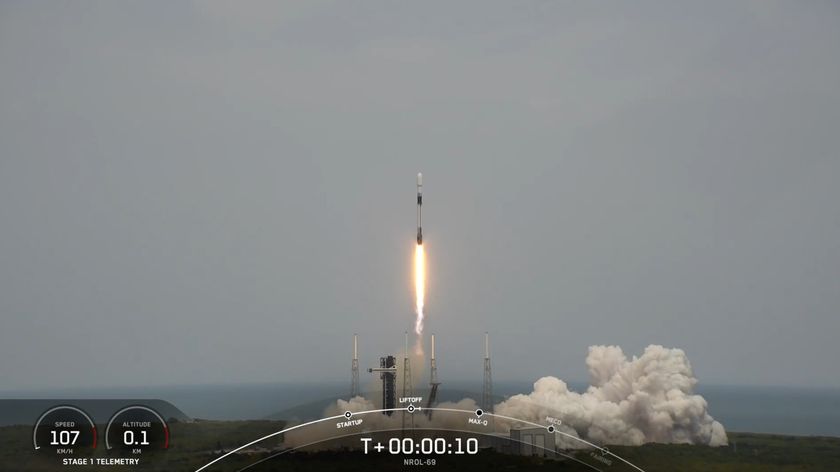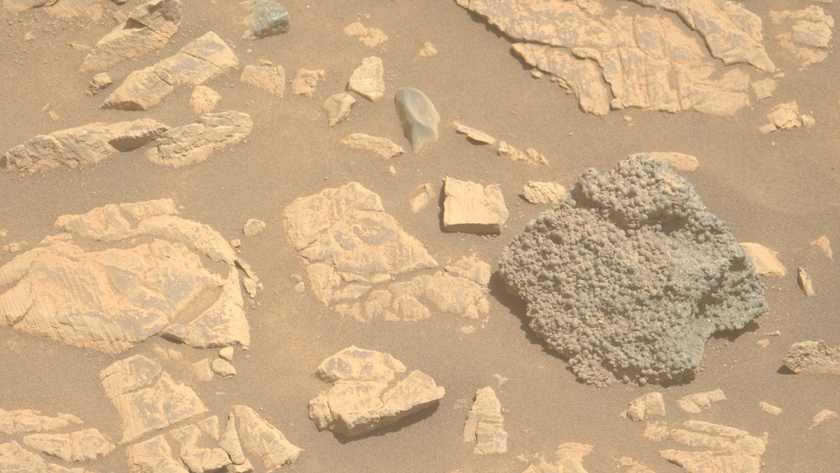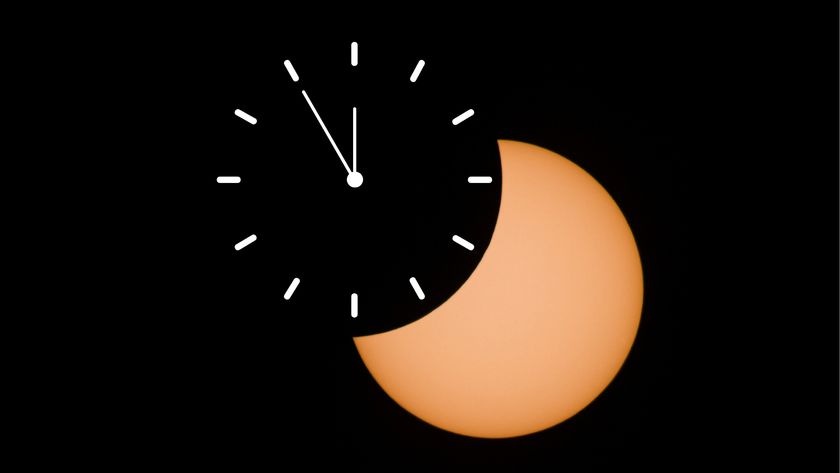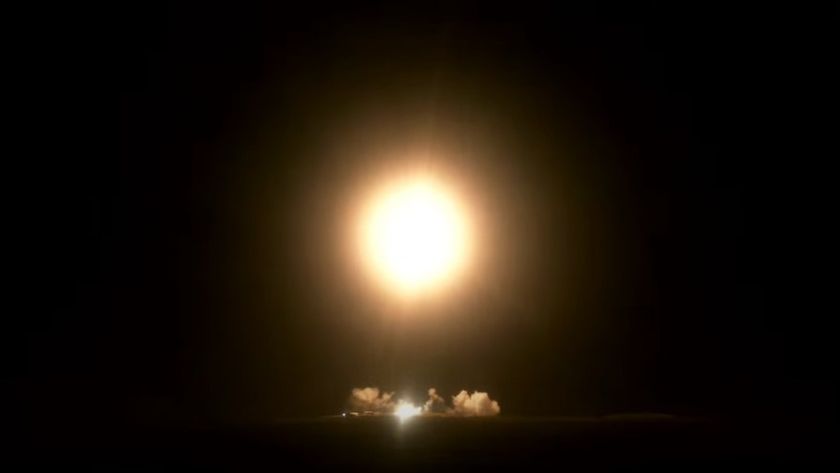SpaceX Aborts 1st Launch of Upgraded Falcon 9 Rocket at the Last Minute
The highly anticipated debut of SpaceX's new Falcon 9 "Block 5" rocket has been delayed by at least a day.
The company's first-ever Falcon 9 Block 5 was scheduled to launch this afternoon (May 10) from NASA's Kennedy Space Center in Florida, on a mission to carry the Bangabandhu Satellite-1 communications satellite to orbit for the government of Bangladesh.
But an automatic abort was triggered just 58 seconds before the planned liftoff time of 5:47 p.m. EDT (2147 GMT), and SpaceX couldn't diagnose and fix the issue before the launch window closed at 6:22 p.m. EDT (2222 GMT). [See the Evolution of SpaceX's Rockets in Pictures]
"Standing down today due to a standard ground system auto abort at T-1 [minute]," SpaceX said in a Twitter update. "Rocket and payload are in good health — teams are working towards tomorrow's backup launch opportunity at 4:14 p.m. EDT, or 20:14 UTC."
SpaceX has not yet announced what exactly triggered the automatic abort. However, a preliminary review revealed that the rocket and satellite are in good health, company representatives said.
The next launch opportunity comes tomorrow (May 11) at 4:14 p.m. EDT (2014 GMT). You can watch it live here at Space.com or directly via SpaceX. The action will also feature a landing attempt by the Falcon 9's first stage, which will try to touch down on a robotic SpaceX ship stationed in the Atlantic Ocean.
The Block 5 is the latest and final iteration of SpaceX's two-stage Falcon 9 rocket. The new version features a number of reliability and reusability upgrades that should allow each Block 5 first stage to fly 10 times with no refurbishment between launch and landing, and 100 times or more with some minor maintenance, SpaceX founder and CEO Elon Musk has said.
Get the Space.com Newsletter
Breaking space news, the latest updates on rocket launches, skywatching events and more!
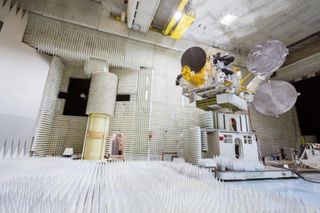
The upgrades were also designed to meet NASA's crew-carrying requirements. SpaceX holds a multibillion-dollar deal with the space agency to fly astronauts to and from the International Space Station, and the company will use the Falcon 9 Block 5 and its Dragon capsule to perform these missions.
Bangabandhu-1, which was built by the French company Thales Alenia Space, will be Bangladesh's first communications satellite. The spacecraft will provide a variety of broadcast and communications services to inhabitants of the South Asian nation.
Follow Mike Wall on Twitter @michaeldwall and Google+. Follow us @Spacedotcom, Facebook or Google+. Originally published on Space.com.
Join our Space Forums to keep talking space on the latest missions, night sky and more! And if you have a news tip, correction or comment, let us know at: community@space.com.

Michael Wall is a Senior Space Writer with Space.com and joined the team in 2010. He primarily covers exoplanets, spaceflight and military space, but has been known to dabble in the space art beat. His book about the search for alien life, "Out There," was published on Nov. 13, 2018. Before becoming a science writer, Michael worked as a herpetologist and wildlife biologist. He has a Ph.D. in evolutionary biology from the University of Sydney, Australia, a bachelor's degree from the University of Arizona, and a graduate certificate in science writing from the University of California, Santa Cruz. To find out what his latest project is, you can follow Michael on Twitter.
